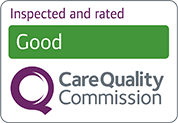Nearly 900,000 public sector workers who have been working on the front line fighting the coronavirus pandemic will be rewarded with an inflation-busting pay rise, but nurses and care workers will not be included.
Chancellor, Rishi Sunak announced the pay rise after months of political pressure to reward frontline key workers. Public sector workers including doctors, dentists, teachers, police officers and the armed forces will benefit from the rise.
But in a devastating blow, no new rise has been announced for other NHS staff including nurses, care workers cleaners and porters who have all risked their lives and more than 300 NHS workers have lost their lives throughout this pandermic.
With inflation currently just 0.6%, the biggest increase of 3.1% goes to teachers, followed by the doctors and dentists receiveing 2.8%.
Below is a breakdown of the pay rises in full.
- School Teachers 3.1 per cent
- Doctors & Dentists 2.8 per cent
- Police Officers 2.5 per cent
- Armed Forces 2 per cent
- National Crime Agency 2.5 per cent
- Prison Officers 2.5 per cent
- Judiciary 2 per cent
- Senior Civil Servants 2 per cent
- Senior Military 2 per cent
Chancellor of the Exchequer Rishi Sunak said: "These past months have underlined what we always knew – that our public sector workers make a vital contribution to our country and that we can rely on them when we need them. It’s right therefore that we follow the recommendations of the independent pay bodies with this set of real-terms pay rises."
"Each award is recommended by independent pay review bodies, and this year government accepted the headline recommended rise for each workforce. This year’s pay awards reflect the enormous effort made by those in the public sector in responding to the unprecedented challenges for the country during the Covid-19 outbreak."
The pay awards for the armed forces, prison officers, senior civil servants and NHS staff work will be backdated to April this year, whereas the pay rise for police and teachers starts in September which run on a different pay year (September-August).
NHS nurses are not included in the announcement because they negotiated a three-year deal in 2018.They are already in the final year which expires in April 2021 and hasn't yet been renewed.
The Treasury pointed to the three-year Agenda for Change pay deal agreed in 2017, which it said saw starting pay for newly qualified nurses increase by 12 per cent, citing an average rise of 4.4 per cent for nurses outside of the most senior roles. The Royal College of Nurses has calculated that the average salary for a nurse has fallen by 8 per cent in real terms since the Tories were elected in 2010.
Unions said the pay rises which ministers have failed to commit to for months amid widespread public outcry are minimal in comparison to the real-term cuts seen over a decade of austerity.
They also highlighted that public sector, including social care workers – who have also risked their lives during the crisis – would receive no such increase. TUC general secretary Frances O'Grady said: "These rises are welcome, but there's still a long way to go to restore pay after a decade of real terms cuts," she said. “Many public sector workers, like job centre staff and local government workers, aren’t getting these rises. They deserve a decent pay settlement too." “And the government should urgently announce a pay rise for social care workers, who put their lives on the line to care for others during this pandemic.”
Social care workers are reliant on private firms which is why they not get a dedicated pay rise either. Policing minister Kit Malthouse said social care workers would have to rely on increases in the minimum wage to improve their pay levels.
As almost a million public sector workers were awarded pay rises, Mr Malthouse said: "The vast majority of social care workers are paid in the private sector so our ability to influence pay rates there is limited." He told BBC Radio 4's Today programme that - apart from "nationalising the entire thing" - the minimum wage rate was the best tool the Government had to recognise the efforts of care workers."
"What we have done is raise the level of the minimum wage very significantly over the last few years to get it up towards the £10.50 mark. That, we hope, will push through into these private sector jobs."
"Everybody looks at people who work in social care during coronavirus and thinks they have done a fantastic job in very, very difficult circumstances. But that's the mechanism by which we think we can increase pay in that sector."
Given that the whole nation were clapping for carers and front line NHS staff every Thursday evening for almost 10 weeks to show their appreciation this is very disheartening to those who risked their lives and continue to do so.
The Treasury said the money for the pay increases of up to 3.1% would come from existing departmental budgets, meaning cash-strapped government departments must work out how to pay for them.
Labour shadow chancellor Anneliese Dodds said the Conservatives had frozen public sector pay for seven years, and the rises they introduced after that failed to plug the gap. She said the pay rise was "good news" but added that it "won't make up for a decade of real-term pay cuts" for many front-line workers.
The British Medical Association said doctors had hoped for "far better". Dr David Wrigley, vice-chairman of the British Medical Association, said doctors would feel "disappointed and let down" as pay "has fallen way behind" over a decade. He told BBC Breakfast: "These are the sort of rises we'd expect to see in normal times, not in a time when many of us have not had a day off in six months and have been putting our lives on the line."
Health Secretary Matt Hancock said: "These past few months have been an incredibly challenging time for our NHS, and the resolve, professionalism and dedication of staff has been on show throughout. We are able to accept the recommendations of the independent pay review body for dentists and doctors."
"I am committed to supporting the entire NHS and social care workforce through improved recruitment and retention and delivering 50,000 more nurses and 6,000 more doctors in general practice."
Related articles
Final huge clap to thank key workers and celebrate ths NHS turning 72
Over fifties and key workers will be given covid-19 vaccine priority
How To Be The Best Caregiver You Can Be
As the UK begins to emerge from lockdown, buiness leaders have backed one last 'huge' applause to thank key workers on the 72nd anniversary of the NHS.
People are being asked to come out and clap at 5pm on Sunday 5th July on the 72nd anniversary of the NHS to say thank-you to all the NHS staff who have worked during the coronavirus crisis.
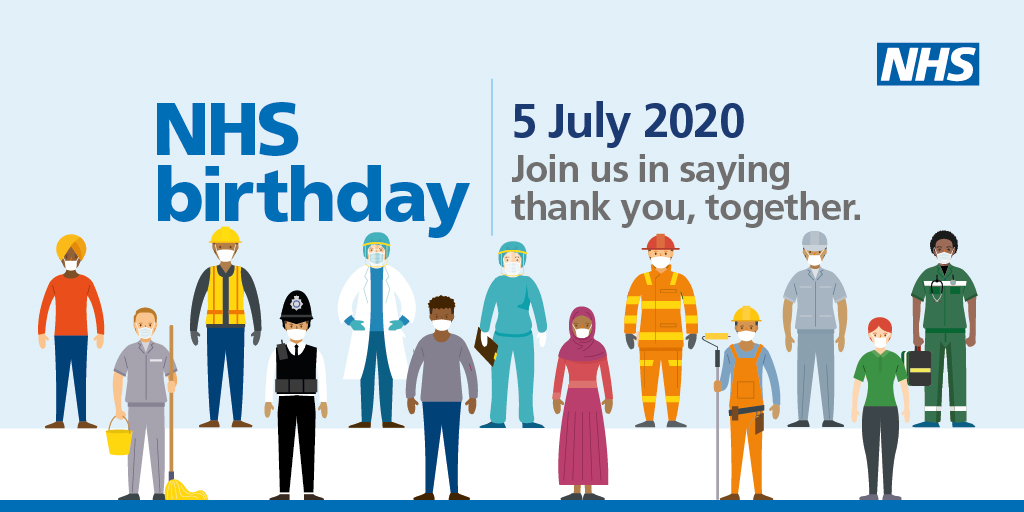
Weekly claps became the norm in the first few months of lockdown with streets of neighbours heading out to their doorsteps, back gardens and windows to give thanks for the effort of healthcare workers during the Covid-19 crisis. The last clap took place on 28th May, after the woman who came up with the idea claimed the show of gratitude had "had its moment" and risked being politicised.
But this Sunday, it will come back as a one-off, with NHS bosses hoping to make it an annual event for the anniversary. Public buildings will be lit up in blue, including the Royal Albert Hall, Blackpool Tower, the Shard and the Wembley Arch, the health service said. As a mark of respect broadcasters will also suspend transmissions for a moment.
People are also being encouraged to put a light in their windows the night before to remember all those who have died from COVID-19, the same day pubs, hairdressers and restaurants will be allowed to open for the first time.
The Clap for Carers initiative started on 25th March by Dutch-born Londoner Annemarie Plas. The weekly tradition was often accompanied by the banging of pots and pans. It was Ms Plas herself who called for the tradition to end after its 10th week and she expressed her hope that it could instead become an annual event.
NHS chief executive Sir Simon Stevens says he hopes the public will use the anniversary as an opportunity to "say a heartfelt thank-you" to hospital staff.
Sir Simon said: "This year has been the most challenging in NHS history, with staff displaying extraordinary dedication, skill and compassion to care for the 100,000 patients with COVID-19 who needed specialist hospital treatment and many others besides."
"During this testing time our nurses, doctors, physios, pharmacists and countless more colleagues were sustained by the support of the public, not least through the weekly applause for key workers."
"No health service, not even the NHS, could have coped alone with this coronavirus pandemic. From bus drivers and teachers to care staff and food retailers and, of course, the public who took action to stay at home to stop infection spreading, everyone played their part."
A coronavirus vaccine is not yet available, however when it is frontline key workers in the health and social care sectors and those with heart and kidney disease, and the over 50s will be given priority, the health secretary has announced. He said he will priorotise those people for vaccinations who are at higher risk of getting COVID-19.
Human trials began on a second potential vaccine being developed at Imperial College London this week, while production has already started on another possible inoculation at Oxford with the aim of building up stockpiles to be ready for deployment if it is approved for use in the autumn. He said "AstraZeneca has struck a deal for the manufacture of the Oxford vaccine. They’re starting manufacturing now, even ahead of approval, so we can build up a stockpile and be ready should it be clinically approved.”
Speaking at the daily Downing Street coronavirus briefing, Matt Hancock said his approach to vaccines was ”to throw everything at it as fast as we can” in order to have inoculations ready to use as soon as they are deemed safe.
Millions will have to wait their turn as demand for protection from Covid-19 is high. The Joint Committee on Vaccination and Immunisation (JCVI) issued interim advice that jabs should go first to frontline health and social care workers and those at increased risk of serious disease and death because of age and underlying health factors. Mr Hancock said that work was under way to see whether black, Asian and minority ethnic people should be added to the list because of research showing that they make up a disproportionate share of cases and deaths.
The health secretary said: "As we learn more about the virus we will continue to take into account which groups may be particularly vulnerable, including, for example, those from ethnic minority backgrounds so that we can protect the most at risk first, should a vaccine become available, and get this country back on our feet as soon as we possibly can." “In the long run, the best way to defeat this virus is of course the discovery of a vaccine. And since the start we’ve been supporting the most promising projects."
In deciding who comes first in the queue for the vaccine, Matt Hancock said ministers will be “guided by the clinical science, prioritising those in most need”.
Protect your mental health during lockdown
Being concerned about the news is understandable, but for many people this is taking its toll on people's mental health, particularly those already living with conditions like anxiety and OCD.
People across the UK are now staying at home for long periods without the contact with friends, family and colleagues which would normally be part of everyday life. Some people may find the change easy to adapt to, but for others this will be a very difficult adjustment to make. It can make existing mental health problems worse.
Many are beginning to realise that this unique moment requires a focus on mental health as well as physical.
So how can we ensure our mental health is protected during the Covid-19 lockdown? Here are some tips for minding your mental health during the lockdown .
1. Get dressed and set up a routine
Creating a routine will help bring a sense of purpose to your days. With nowhere to go or nobody to see, it may seem pointless to get dressed and showered, but you’ll feel untidy and dirty by the end of the day. So, by just starting with simply getting dressed will help make you feel fresh and more like yourself. Without doubt, this is the quickest, easiest thing you can do that reaps the most benefits.
Think of a few things you could do that would make you feel accomplished – like studying for an hour, cooking, gardening or doing a workout video – and a few things you want to do – like gaming, binging Netflix. Perhaps do work around the house that you haven’t got around to all these years due to a lack of time. Lists are super useful here and will help you to look back and see what you have achieved with your day.
2. Stay connected
Advances in mobile technology in particular mean that we can stay connected through calls, text, WhatsApp, email, social media etc. Use this time to get in contact with people.
Try to connect with people who you haven't heard from in a while or people in your community who are likely to be isolated right now. The additional time at home can bring tension but it can also be an ideal opportunity to reconnect and strengthen relationships within the family.
Remember you can always mute WhatsApp groups and Facebook groups if you’re finding them too overwhelming. You can also mute keywords and unfollow accounts on most social media platforms., which will help limit unwanted content on newsfeeds.
3. Maintain a healthy lifestyle
The negative impact of sleep disruption on mood is well-established. Without the structure of having to get to school, college or the workplace, it can be easy to fall into unhealthy sleep habits like going to bed later and getting up later. Changes to your sleep cycle now could go on to impact your mood in the weeks and months ahead.
Scheduling a balanced range of activities in your day including:
• Getting adequate and healthy sleep
• Daily routine of working and resting
• Eating nutritious food
• Exercising at home, there are lots of video on YouTube you can try out
• Practice meditation or try to relax when you can
• Do not be afraid to discuss your anxieties and fears with someone. It helps to ventilate and talk things out.
4. Working from home
If you find yourself working from home for the first time, it means figuring out how to stay on task in a new environment that may not lend itself to productivity. But there are ways to deliver results and avoid going stir-crazy, from setting up a good workspace to the way you talk to your team.
- Have a clear workspace is crucial for your state of mind, and not just in terms of being in a "working" mindset but also so you're able to turn off when the working day is over.
- Washing and dressing appropriately is very important when working from home. It will not only improve your state of mind, it will psychologically prepare you to start work. Likewise, changing out of work clothes when you clock off for the day helps your brain to understand that the working day is over.
- Remember to eat. With no access to a canteen or shops you most likely will have to make lunch. Try to plan ahead what you will make so that it is built into your schedule and it’s a healthy and nutritious meal.
- Taking breaks regularly is very important to avoid being burnt out. Overworking will only result in less productivity and frustration. Being cooped up inside can lead to fatigue, therefore even walking around the garden or even watering plants around the house will help keep your mind active and focused.
- Establishing boundaries is very important, especially if you're employed by a company, you'll probably have set hours of work, and it's important to stick to these when you're working from home. Be ready to start your day at the same time as you would normally arrive in your office or workplace, and finish your day at the same time. Setting a “to do list” will help you stay on track, organised and create order. Sharing this with your employer is also helpful so they are aware of your work.
5. Maintain hygiene
Whilst it is important to maintain hygiene, do not be preoccupied with it all the time. Be mindful of washing hands, and not touching metal surfaces, do not cough or sneeze without tissue paper.
6. Limit social media usage
Whilst it’s important to stay digitally active, it is also important to carefully choose your news and media sources, particularly if some of the information you are receiving is leaving you feeling overwhelmed. Remember that some of the information online is driven by the views, opinions and agendas of individuals, and it may not be helpful for you to take those on as your own right now.
Choosing one or two well-informed sources and limiting yourself to set times during the day to check for ups for example at 9am and 5pm.
Try and share the positive stories you see: of people who have recovered or even a post on social media that made you laugh.
7. Understand the risk
Stay up to date on COVID-19 but only trust the information that comes from authentic sources.
From the government: https://www.gov.uk/coronavirus
From the NHS: https://www.nhs.uk/conditions/coronavirus-covid-19/
Try not to be glued to the news 24/7
Do not believe every message or tweet circulated in social media
8. Be prepared
Make a list of helpful contact numbers and emails – such as for healthcare and keep enough supply of non-prescription medicines to last at least a month. Talk to family and friends nearby about how you can support each other, in case one household is quarantined. For example, dropping supplies outside the front gate. Use self-help tools. There is a list of clinically approved apps that have been put together by ORCHA – who’ve been set up to help regulate the safety and value of these apps and make sure people find the right app for the right reason. They have recommended Wysa to cope with stress or anxiety issues. Wysa has released free tool packs for everyone to cope with the stress of isolation and current health anxiety. They want to ensure that everyone has mental health resources during this crisis.
At this time, it is important that everyone gets the help they need – and this includes looking after yourself.
Please continue to follow NHS guidance, stay at home, protect the NHS, and save lives.
Thank our NHS heroes with huge national clap
This evening the UK will come together for a national salute to honour the hardworking NHS staff and all carers working hard through the coronavirus outbreak.
In a gesture of thanks to the frontline healthcare heroes, everyone across the nation has been invited to join a mass round of applause from their doorsteps, gardens, windows and balconies on Thursday 26th March at 8pm.
Organisers of the "Clap For Carers" campaign - which started online - say it is being staged because "during these unprecedented times they [NHS staff] need to know we are grateful".
The person behind the campaign wrote on its website: "In Spain, France and the Netherlands they already did this. And being a Dutch Londoner, I want to pass this on in the country I feel so at home, and the NHS had been nothing but amazing to my family and myself!"
Landmarks such the Wembley Arch, the Principality Stadium, the Royal Albert Hall and Lincoln Cathedral are set to be lit up in blue during the salute. It is part of the #lightitblue campaign which has been organised by members of the events and entertainment industry as a way to say thank you.
In a statement, organisers said: "The events and entertainment industry finds itself in an unprecedented state of enforced inaction.”
"The best thing we can do - apart from staying at home - is to use our skills and networks to say thank you to everyone who is supporting the NHS and risking their own health to help others during this pandemic."
Shadow Health Secretary Jonathan Ashworth said: "Never have we owed so much to our brilliant and hardworking NHS staff. Just as they are caring for us, we need to care for them and give them every ounce of support they need. I welcome this fantastic initiative to encourage the public to show their appreciation to all our NHS workers."
It comes as the total of confirmed cases of coronavirus in the UK since the start of the outbreak neared 10,000.
As health professionals battle the spread and tend to the patients, more than half a million people have also signed up to be NHS volunteers to support in the crisis.
Staying up to date
The government is continually providing updates. For the latest information and advice please visit Public Health England.
There is also guidance for health professionals on the NHS website www.england.nhs.uk/coronavirus.
Track confirmed coronavirus cases in the UK
The coronavirus dashboard is now available to find out and track confirmed cases in the UK.
Coronavirus Tracker - Mobile friendly guide
Coronavirus Tracker - Desktop guide
Symptoms of coronavirus & what to do
Coronavirus: Guidance for Health Professionals
Coronavirus (COVID-19) Company Notice
With the impact of the coronavirus (COVID-19) the health and safety of our workers, staff and clients is paramount. We are closely monitoring the guidance from the government and implementing their advice.
We have already made preparations to ensure business operations can continue as normal as possible in all scenarios.
We have facilities for remote working and access to all our systems, which allows us to react to and mitigate the risk of spreading the virus.
All members of our work force have been passed instructions on hand-washing and action to take if they feel unwell, this has also been published on the company’s websites and posted in our offices.
Guidance for educational settings
Guidance for healthcare professionals
Symptoms of coronavirus and what to do
We are taking the following specific actions:
- Wherever possible, we are offering client meetings to be "online" rather than face-to-face and avoiding any physical contact, such as handshakes
- We are asking all visitors to wash their hands with soap and water or hand sanitizer before entering our office
- We are following all government guidelines with respect to international travel
- We are suspending conferences and large internal meetings taking place in March and April that require travel
- We are undergoing regular deep-cleaning our offices
- Colleagues and temporary workers returning from travel, either business or personal, from a high-risk area are being asked to work from home for 14 days irrespective of symptoms
We do not currently foresee any impact on the continuity of our service, but should the situation change we will notify all our staff, workers and clients immediately. Although we believe the actions, we have put in place are appropriate for the current levels of risk, they are in constant review.
The government is continually providing updates of Coronavirus (COVID-19) in the UK.
For the latest information and advice please visit Public Health England.
You can also view the Government’s Coronavirus Action Plan.
There is also guidance for health professionals on the NHS website https://www.england.nhs.uk/coronavirus/
Track confirmed coronavirus cases in the UK
The coronavirus dashboard is now available to find out and track confirmed cases in the UK.
Symptoms of coronavirus & what to do
Symptoms of coronavirus
Coronavirus infects the lungs. The symptoms start with a fever followed by a dry cough, which can lead to breathing problems. It takes five days on average for symptoms to start showing.
The most common symptoms of coronavirus (COVID-19) are recent onset of:
- new continuous cough and/or
- high temperature
For most people, coronavirus (COVID-19) will be a mild infection
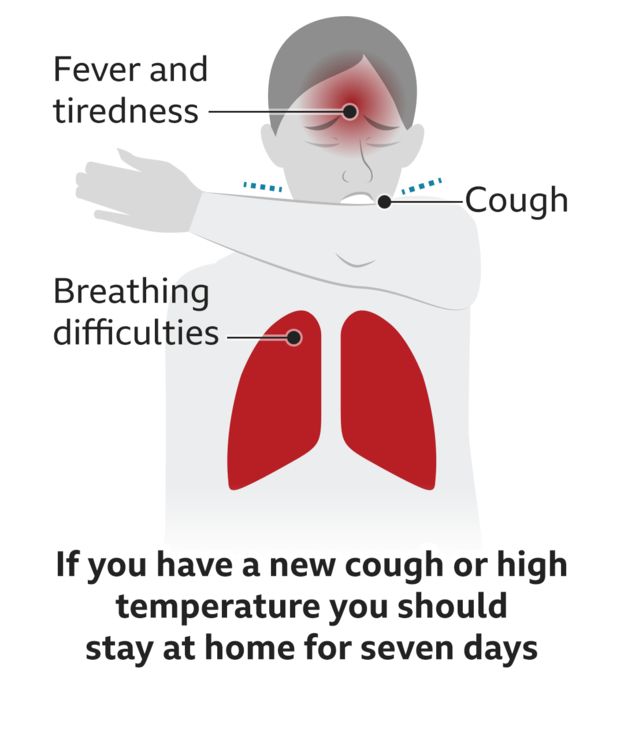
How to avoid catching or spreading coronavirus
DO:
- wash your hands with soap and water often – do this for at least 20 seconds
- always wash your hands when you get home or into work
- use hand sanitiser gel if soap and water are not available
- cover your mouth and nose with a tissue or your sleeve (not your hands) when you cough or sneeze
- put used tissues in the bin immediately and wash your hands afterwards
- try to avoid close contact with people who are unwell
DON'T
- do not touch your eyes, nose or mouth if your hands are not clean
What to do if you have symptoms of coronavirus
- You do not need to call NHS 111 to go into self-isolation.
- Use the 111 coronavirus service online assessment
- To protect yourself and others, do not go to a GP, pharmacy or hospital
- if you have symptoms of coronavirus infection (COVID-19), however mild, stay at home and do not leave your house for 7 days from when your symptoms started. This action will help protect others in your community whilst you are infectious. Read more advice about staying at home.
- plan ahead and ask others for help to ensure that you can successfully stay at home.
- ask your employer, friends and family to help you to get the things you need to stay at home.
- stay at least 2 metres (about 3 steps) away from other people in your home whenever possible.
- sleep alone, if that is possible.
- wash your hands regularly for 20 seconds, each time using soap and water.
- stay away from vulnerable individuals such as the elderly and those with underlying health conditions as much as possible.
If your symptoms worsen during home isolation or are no better after 7 days contact NHS 111 online.
If you have no internet access or unable to get help, you should call NHS 111. For a medical emergency dial 999.
Treatment for coronavirus
There is currently no specific treatment for coronavirus.
Antibiotics do not help, as they do not work against viruses.
Treatment aims to relieve the symptoms while your body fights the illness.
You'll need to stay in isolation, away from other people, until you have recovered.
Ending self-isolation
You should remain at home until 7 days after the onset of your symptoms. After 7 days, if you feel better and no longer have a high temperature, you can return to your normal routine. If you have not had any signs of improvement and have not already sought medical advice, you should contact NHS 111 online at 111.nhs.uk. If you have no internet access, you should call NHS 111.
Cough may persist for several weeks in some people, despite the coronavirus infection having cleared. A persistent cough alone does not mean you must continue to self-isolate for more than 7 days.
Track confirmed coronavirus cases in the UK
The coronavirus dashboard is now available to find out and track confirmed cases in the UK.
Staying up to date
The government is continually providing updates. For the latest information and advice please visit Public Health England.
There is also guidance for health professionals on the NHS website www.england.nhs.uk/coronavirus.
Coronavirus: guidance for health professionals
Find guidance about coronavirus (COVID-19) for health professionals, businesses, schools and other organisations.
This guidance was last updated on 12th March 2020, for the latest information please visit https://www.gov.uk/government/collections/coronavirus-covid-19-list-of-guidance
The advice for anyone in any setting is to follow these main guidelines.
- If you have been in contact with someone with coronavirus or have returned from an affected area identified by the Chief Medical Officer as high risk and you are feeling unwell with a cough, difficulty breathing or fever, stay at home and use the NHS 111 online coronavirus service or call NHS 111.
- Wash your hands more often than usual, for 20 seconds using soap and hot water, particularly after coughing, sneezing and blowing your nose, or after being in public areas where other people are doing so. Use hand sanitiser if that’s all you have access to.
- To reduce the spread of germs when you cough or sneeze, cover your mouth and nose with a tissue, or your sleeve (not your hands) if you don’t have a tissue, and throw the tissue away immediately. Then wash your hands or use a hand sanitising gel.
- Clean and disinfect regularly touched objects and surfaces using your regular cleaning products to reduce the risk of passing the infection on to other people.
At the current time and based on our understanding of what is known of COVID-19 and other similar respiratory viruses, it is likely that older people and those with chronic medical conditions may be vulnerable to severe disease. As more information emerges, recommendations may change.
Guidance for health professionals
- COVID-19: background information
- COVID-19: investigation and initial clinical management of possible cases
- COVID-19: infection prevention and control
- COVID-19: guidance for primary care
- COVID-19: guidance for first responders
- COVID-19: guidance for Ambulance Trusts
- COVID-19: guidance for sampling and for diagnostic laboratories
Track confirmed coronavirus cases in the UK
The coronavirus dashboard is now available to find out and track confirmed cases in the UK.
The government is continually providing updates. For the latest information and advice please visit Public Health England.
Ther is also guidance for health professionals on the NHS website www.england.nhs.uk/coronavirus.
Washing hands for 20 seconds in hot water is central to preventing and slow the spread of coronavirus (COVID-19).
It is one of the easiest ways to protect yourself and others from the virus as well as illnesses such as food poisoning and flu.
When to wash your hands
- Before, during, and after preparing food
- Before eating food
- Before and after caring for someone at home who is sick with vomiting or diarrhoea
- Before and after treating a cut or wound
- After using the toilet
- After changing diapers or cleaning up a child who has used the toilet
- After blowing your nose, coughing, or sneezing
- After touching an animal, animal feed, or animal waste
- After handling pet food or pet treats
- After touching garbage
How to wash your hands
The NHS have put together a thorough step-by-step guide to washing your hands with soap and water. You should wash your hands for the amount of time it takes to sing "Happy Birthday" twice (around 20 seconds).
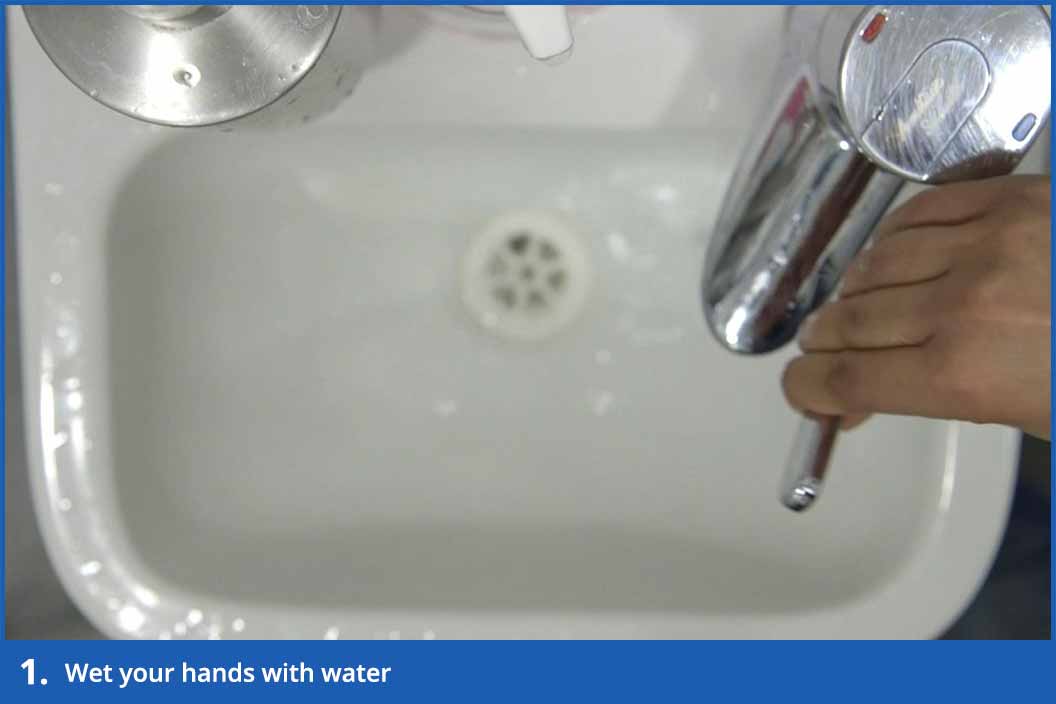
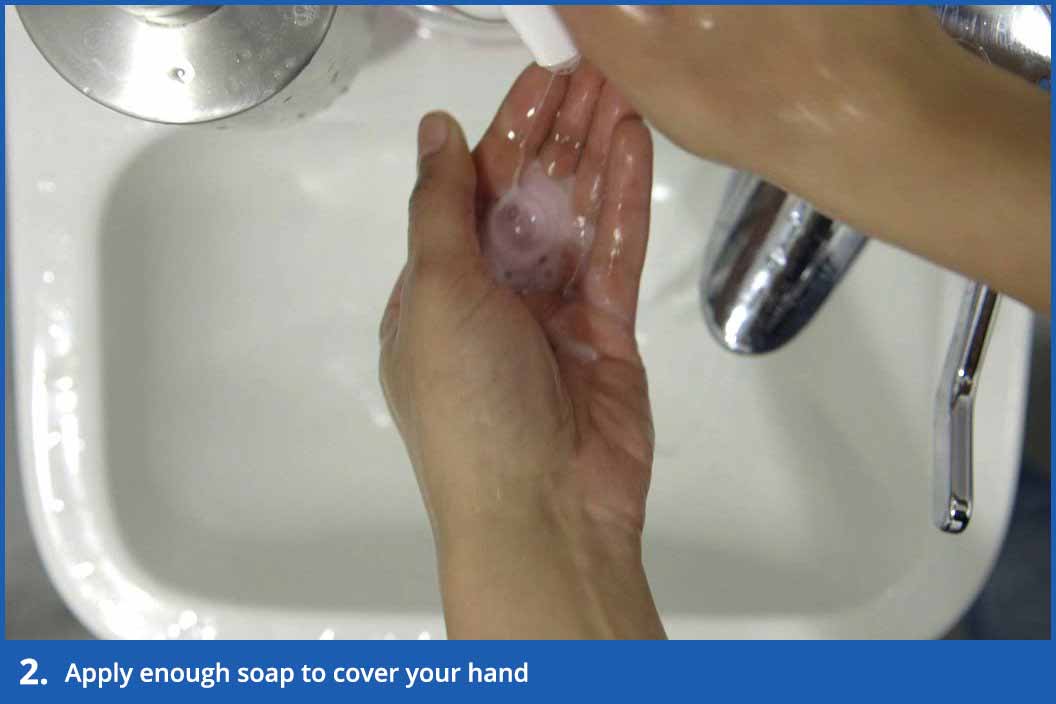
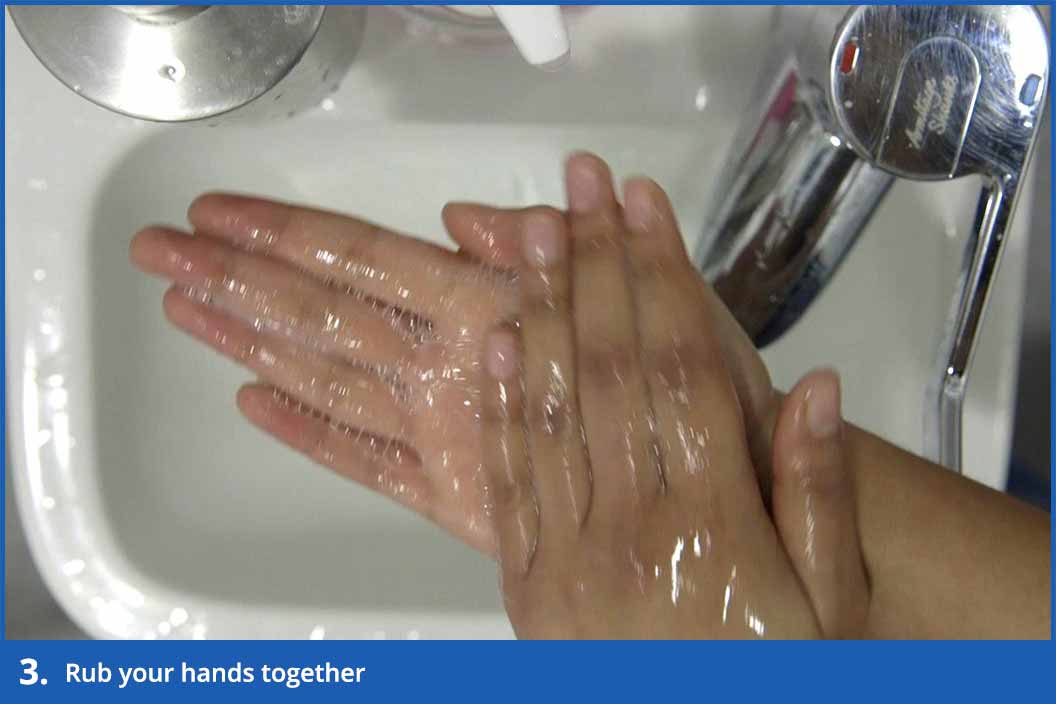
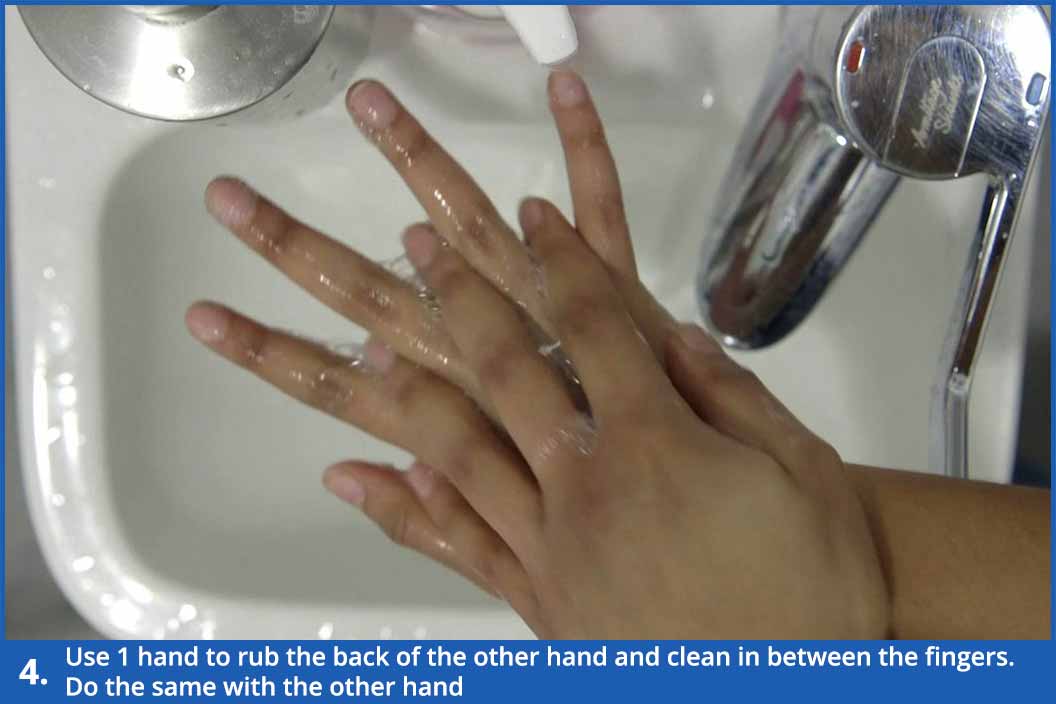
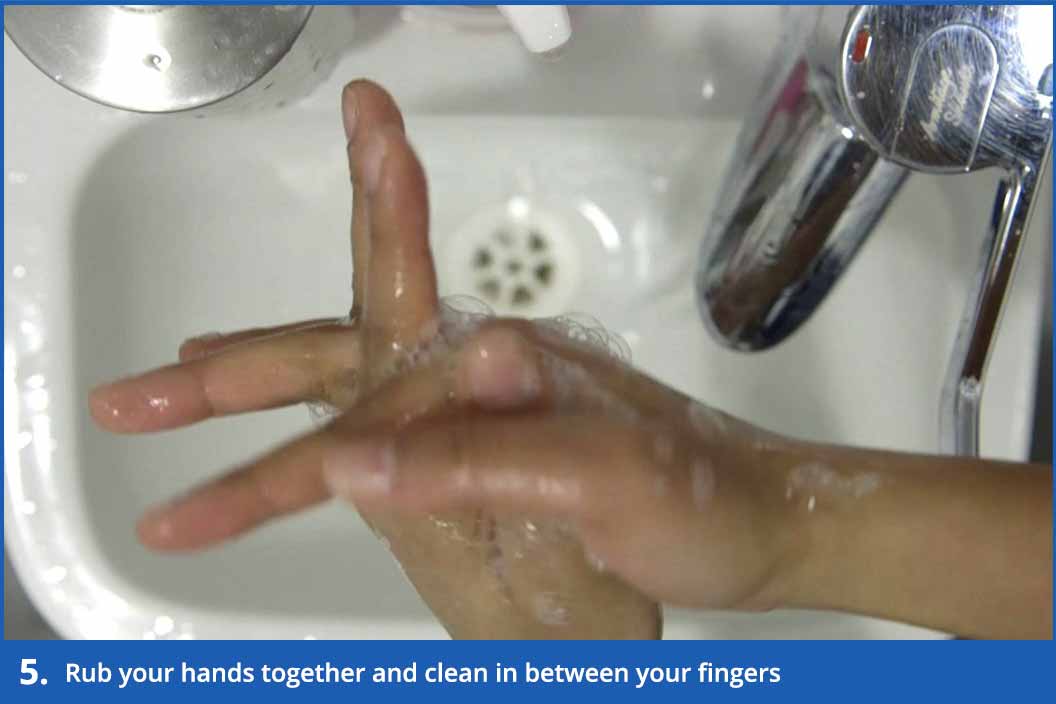
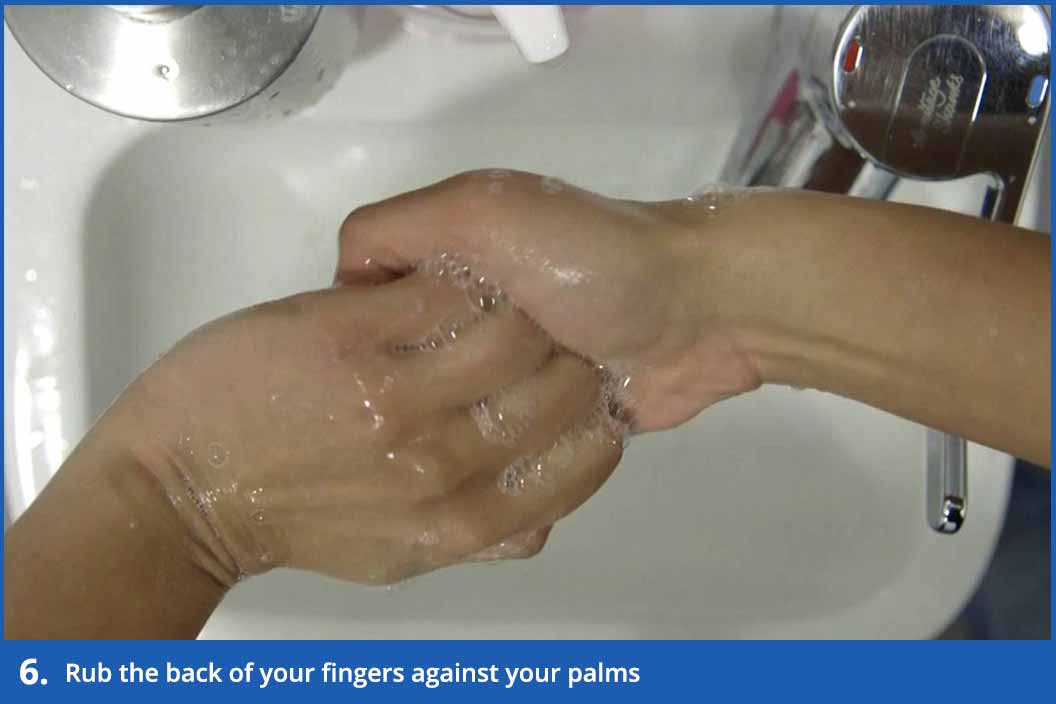
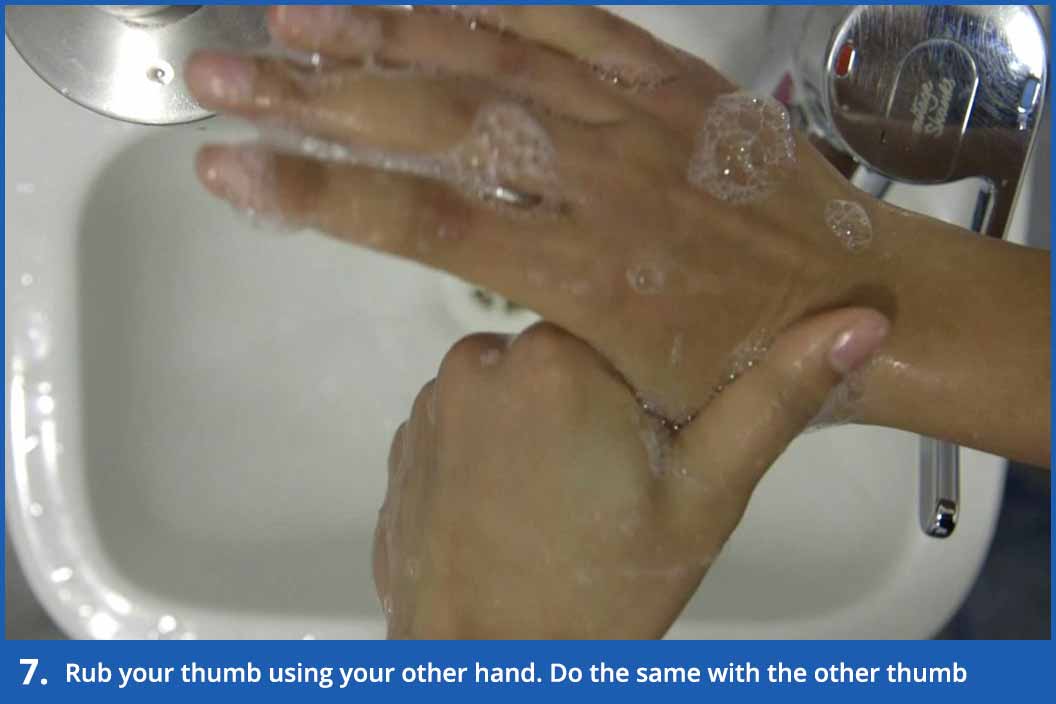
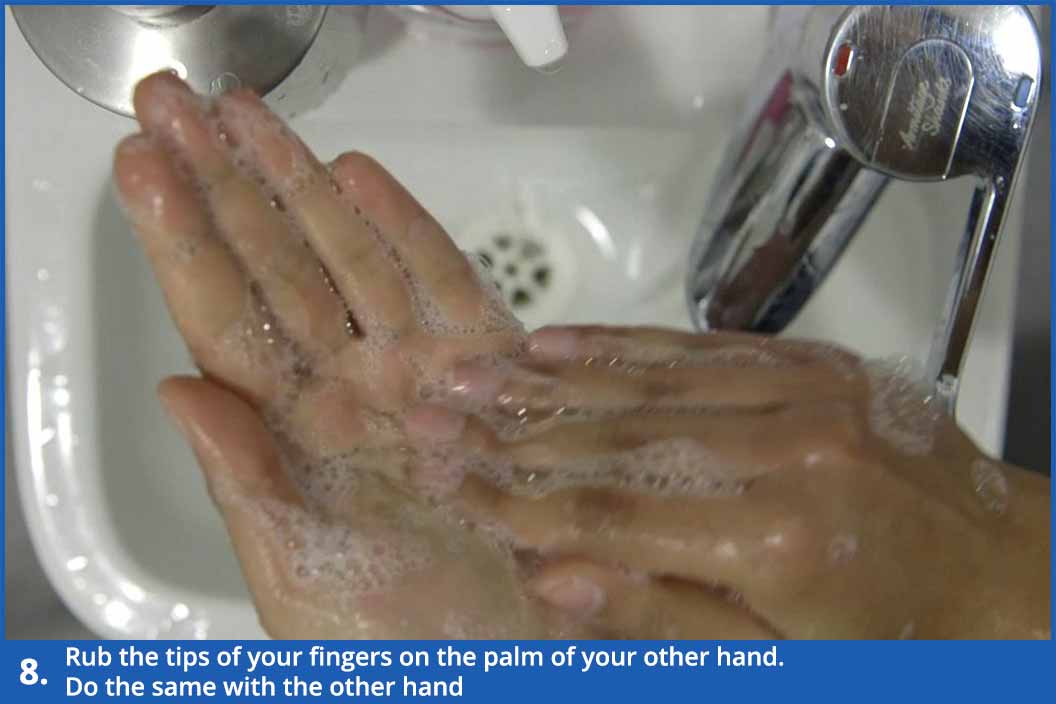
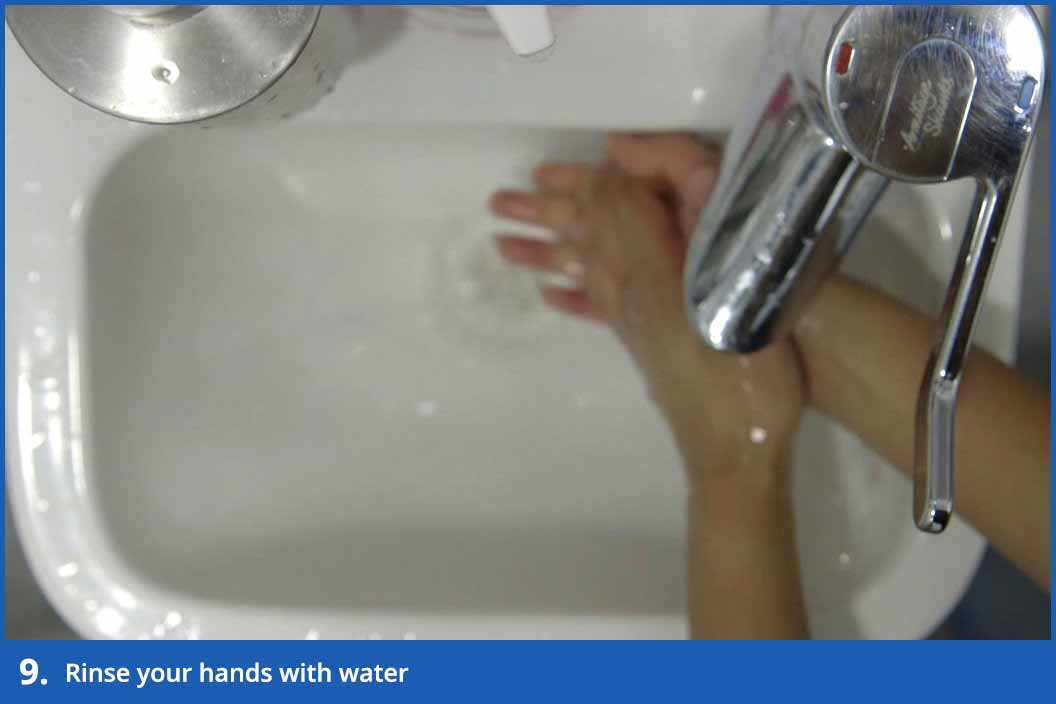
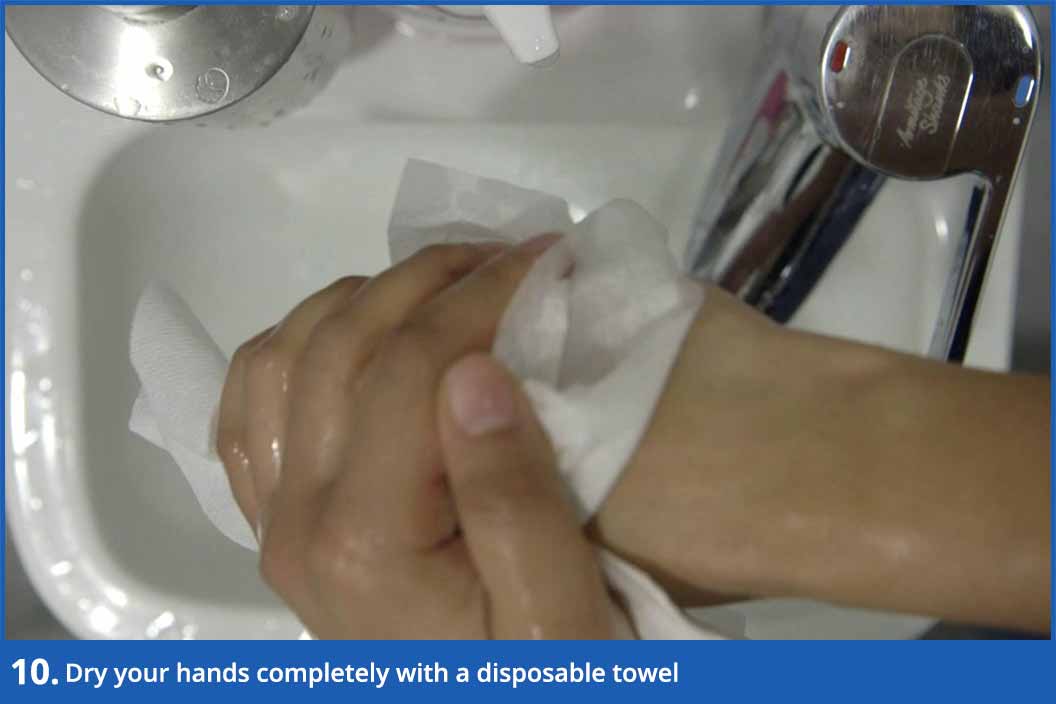
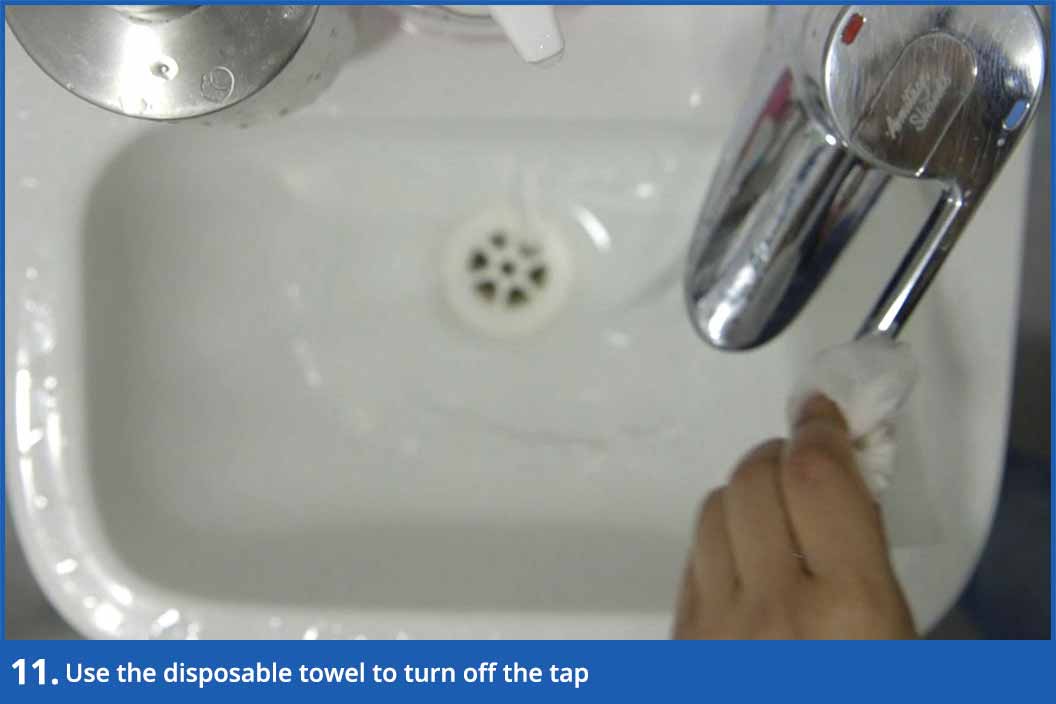
Video Guides
Watch these videos to find out the best way to wash your hands. There’s also one for young children to help get them involved in good hand washing.
How to wash your hand NHS Guide
https://www.youtube.com/watch?v=aGJNspLRdrc
Child friendly guide on how to wash your hands NHS
https://www.youtube.com/watch?v=S9VjeIWLnEg
Hand-Sanitizers
Washing hands with soap and water is the best way to get rid of germs in most situations. If soap and water are not readily available, you can use an alcohol-based hand-sanitizer that contains at least 60% alcohol. You can tell if the sanitizer contains at least 60% alcohol by looking at the product label.
Sanitizers can quickly reduce the number of germs on hands in many situations. However,
- Sanitizers do not get rid of all types of germs
- Hand sanitizers may not be as effective when hands are visibly dirty or greasy
- Hand sanitizers might not remove harmful chemicals from hands like pesticides and heavy metals
How to use hand sanitizer
- Apply the gel product to the palm of one hand (read the label to learn the correct amount)
- Rub your hands together
- Rub the gel over all the surfaces of your hands and fingers until your hands are dry. This should take around 20 seconds
For more information and to see the government response to coronavirus, visit GOV.UK







